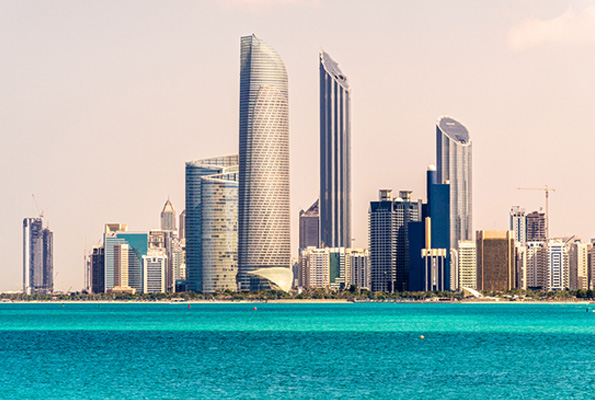The first nine months of 2022 saw Abu Dhabi’s GDP expanding by 10.5%, the highest rate in the Middle East and North Africa (MENA), according to the Statistics Centre – Abu Dhabi (SCAD).
Due to the joint efforts of the government and private sector, Abu Dhabi continues to develop at the end of Q3 2022 across its diverse sectors, as it works towards building a knowledge-based economy, backed by a robust framework.
As a part of its economic diversification process, the region is working to promote a range of non-oil activities, apart from maintaining a sound fiscal policy, macroeconomic stability and competitiveness, which will help it to respond to ever-changing market needs and trends. Abu Dhabi has also launched several initiatives recently to improve its legal frameworks, in order to encourage investments.
“Abu Dhabi’s robust economy continues to prove its superiority driven by our leadership’s clear vision, its ability to attract foreign direct investments, and its agile policies that enabled our economy to achieve the strongest growth in the region,” Ahmed Jasim Al Zaabi, Chairman of the Abu Dhabi Department of Economic Development (ADDED) informed the media.
He continued, “Abu Dhabi is the preferred location for talent and investors from around the world due to its renowned cosmopolitan lifestyle and unmatched infrastructure. The private sector is essential to the economy’s ability to thrive, and we will keep prioritising sustainable economic policies to diversify the investment environment.”
SCAD’s Director-General Ahmed Mahmoud Fikri remarked, “The non-oil gross domestic product of the Emirate of Abu Dhabi has experienced accelerated growth rates, reaching a 10.3% increase by the end of the third quarter of 2022. The mindful leadership’s strategic initiatives, which have tried to diversify the economy, encourage private sector engagement, and invest in human capital, are responsible for this growth. These initiatives have created a robust, resistant economic environment.”
The non-oil industries were estimated to have contributed 50.3% of the GDP by the end of Q3 2022, up AED 39 billion from the same period in 2021, according to the SCAD data.
When compared to the same time last year, Abu Dhabi’s real estate market grew by a staggering 20.3%. Investors have been drawn to Abu Dhabi’s famed waterfront and island communities and real estate activity has increased throughout 2022.
In Abu Dhabi, the lodging and food services sector saw a growth of 20.2%. Hotel occupancy rates too have risen to a two-year high. A total of 4.1 million hotel guests spent the night in Abu Dhabi in 2022, a 24% rise from the year before. Compared to the Middle-East average of 63.6%, hotel occupancy rates in Abu Dhabi hit 70%.
The wholesale and retail trade sector generated AED45 billion during the first nine months of 2022, a rise of 17.4% over the same time in 2021. 5.4% of Abu Dhabi’s GDP during the previous nine months came from this industry.
At the same time, the transportation and storage industry added AED14 billion, an increase of 11.4%. This industry, which increased the Emirate’s GDP by 1.7%, includes activities connected to the storage and movement of people and goods. According to Abu Dhabi Airports, 15.9 million passengers in total utilised the aviation facilities in the region in 2022.
The manufacturing sector expanded at an annual rate of 8.1% and contributed 8.0% to the GDP. With the recently unveiled Abu Dhabi Industrial Strategy, the sector is anticipated to double in size by 2031, further solidifying the Emirate’s status as the most competitive industrial hub in the region.
To more than quadruple the size of the Emirate’s manufacturing sector to AED 172 billion by 2031, the Abu Dhabi government has announced that it will invest AED 10 billion across various ambitious industrial schemes.
To increase Abu Dhabi’s non-oil exports by 143% to AED178.8 billion by 2031, the new strategy will increase the Emirate’s trading with foreign markets.
With a value of AED28 billion, the financial sector in Abu Dhabi expanded by 6.9% in the first nine months of 2022 compared to the same time in 2021. The industry represented 5.5% of the GDP.



